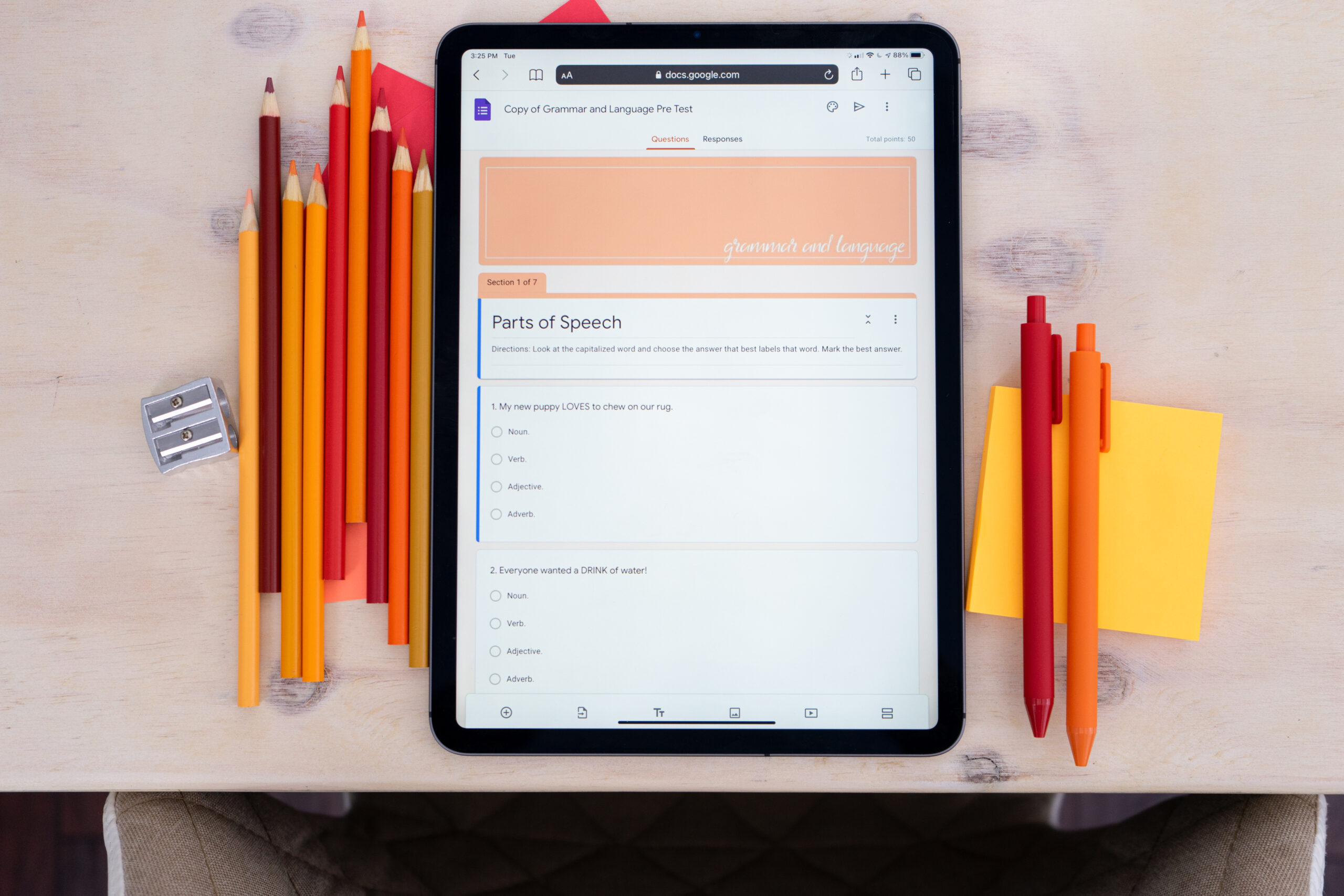Are you a new teacher ready to create high school English lesson plans? High school language arts lesson plans contain many pieces.
I know you’ve learned the theories and methods behind lesson plan creation. You’ve made lesson plans for college courses and student teaching. Tons of people are going to give you advice.
And I’ll give you a bit more, but I’ll preface it with this: This is my process for creating lesson plans for high school English. Everyone has their own way of creating English lesson plans for high school. Sometimes looking at another teacher’s methods helps to have a model. Take what works, make some of it yours, discard the rest.
When starting high school English lesson plans, I approach it in this manner.
Get the hard facts…
Get your concrete tools. Let’s say you have materials: textbooks, standards, and any student materials. Hopefully you have a guide of some sort, like a curriculum map. Perhaps a mentor or other teacher loaned you copies of lesson plans. If you have a guide of some sort, a resource to consult, this will give you a starting point.
Know your time frame. If you’re making a lesson plan for one class period, you need to map out 50, 85, or however many minutes. Do you need to start class a certain way? I once was at a school where teachers needed to have a ‘menu’ on the board so that students could see the day’s plan.
Finally, understand what your school expects from you. Some schools allow teachers to choose their materials to meet standards. Other schools require teachers use certain texts. Before you write lesson plans for high school English, ask what (if anything) you must teach.
Gather any facts of your lesson plans before you begin.
Answer the following questions…
How are you starting your classes?
Common ways include writing in a journal or bell ringers. It’s a personal preference, and each class has individual needs. My students start with a daily activity. Providing them with a concrete start to the class gives them a routine which eliminates some anxiety. Then, I can take attendance and settle students.
What are best practices?
You shouldn’t do one thing the entire class period. For instance, some research shows that students check out after seven minutes. So what activities could happen during class? I frequently use stations because I get feedback from students as they interact with their peers. Then, my future lesson plans are more authentic.
Understand the technology available to you and what the expectations are. Some schools are 1:1 while others incorporate technology in other ways. Plus, if your school pays for a platform like Canvas or Schoology, the expectation might be that you put classroom material on that website.
Can I contribute to my classroom’s overall community?
Other questions are less concrete. Does your lesson have a theme? Can you make transitions for your students as you move from one topic to the next? How will you introduce and then close the lesson? Can you provide an overview of where this material will take students. . . how it connects to their lives? What will you be teaching next, and how will the pieces connect? In what ways are you conveying the standards, the goal of the learning material? Lesson plans for high school English take time to cultivate, and constant revisions. Don’t worry if you can’t answer all of those questions your first few years of teaching.
Those are tons of questions, and with your initial lesson planning, you maybe cannot answer all of them. As you continue writing lesson plans, incorporating those ideas will help your students. You will develop a flow and a system that works for you and your unique community of learners.
When creating English lesson plans (for high school teachers), it may seem like there are innumerable questions and practices to consider. Eventually, it will be easier and second nature to embrace your goals. As you get a better picture, you will be able to provide a better one to students.

A sample
For the present time, if you are a new teacher making your own high school English lesson plans for the first time, here is a picture of what one could look like:
50 minute high school language arts lesson plans, grade 10
10 minutes: Students will complete a prompt from their mentor sentence presentation.
Review common terminology such as “denotation” and “parallelism.” Connect today’s concept to yesterday’s discussion.
15 minutes: Students will implement changes in their writing assignments. From the class discussion, students can correct their papers, using peer’s suggestions. As a class, discuss the writing topic as an introduction to literature— “what has been the greatest use of propaganda so far in Animal Farm?” I suggest writing part or all of the writing assignment with students.
Transition: Create a list of propaganda. Students may use their papers and books as needed.
20 minutes: Students will read chapter seven of Animal Farm. As students read, they should find four words to define.
5 minutes: Wrap up class, explaining that students are responsible for the rest of reading and writing vocabulary words. Next class, they will complete a vocabulary activity, defining and altering the parts of speech of their new words.
That is a fast example of a lesson plans for high school English. It is not the only way to create one!
Like I mentioned, that is only an example of a lesson plan. A beautiful part of teaching ELA is that you reach an assortment of students in a variety of ways, because the subject covers such diverse topics. (Someone dislikes poetry? Here’s nonfiction. No? What about a play?)
No two teachers create English lesson plans the same way. Of course, all lesson plans need certain components and require certain considerations. We must reach standards. As you begin lesson plan creation, it may help to have numerous resources and guidelines. As you expand your repertoire and gather more experiences, your language arts lesson plans will be yours—showing your passion and reaching students.


